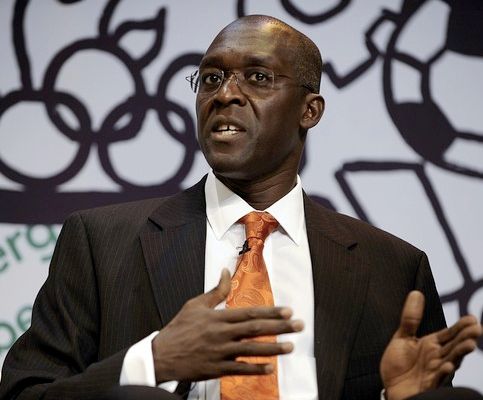“Don’t come to Africa and help, come and make money,” said Mo Ibrahim,
Africa’s pioneer telecoms billionaire. As its economic promise continues to take shape, so Africa is churning out millionaire businessman after multi-million dollar business. But just how are these super-successful tycoons amassing their riches?
Over the last decade or so, we have witnessed the blossoming of the knowledge economy. The software and technology sectors have taken off, birthing a new breed of billionaire – Steve Jobs, Larry Page, Mark Zuckerberg – and cementing their viability. While this has made many exceptionally prosperous, it has not been a major source of income for Africa’s wealthiest.
When talking about financial fortunes on the continent one need only look at the usual suspects: oil and gas, investments, manufacturing, construction, financial services, real estate and other traditional terms of commerce.
A review of Africa’s richest people reveals a list of visionaries: savvy politicians-cum-businessmen, technocrats, dropout CEOs and scions, many of whom have meshed Africa’s peculiar business climate, politics and enterprise to build world-class businesses on the continent and beyond. Some of Africa’s wealthiest, like pioneer telecoms tycoon, Mo Ibrahim, saw promise where multinationals “saw penniless peasants and logistical nightmares”. These daring entrepreneurs spotted opportunities and built on them, some leveraging their political and business networks to diversify and expand enterprises they had started, others working hard to grow their existing or family businesses.
The bank accounts of over 30 percent of Africa’s wealthiest are filled with income from diversified industries. Entrepreneurs such as Nigeria’s Aliko Dangote, South Africa’s Cyril Ramaphosa, and Egypt’s Sawiris family, have interests in multiple sectors. For instance, the success of Ramaphosa, a politician-cum-businessman, can in part be attributed to the diversity of his business portfolio. His holding company, Shanduka, invests in various sectors, among them financial services, the industrial sector, mining and real estate. Aliko Dangote’s business interests do not lie solely in cement, nor are they restricted to Nigeria. Instead they span the continent, covering sectors such as oil and gas, flour, sugar, textiles and beverages.
Financial services and investing are the next biggest wealth-generators, with 20 percent of Africa’s billionaires drawing fortunes from this sector. A large portion of African billionaires have their fortunes nestled in investment holding companies, which in turn buy into profitable ventures across Africa.
The oil and gas industry is big business, especially with recent discoveries in East Africa expected to accelerate economic growth; however, only 12 percent of Africa’s billionaires made their fortunes in this sector. Media, mining, retail, telecoms and construction all draw 5 percent each, mirroring a global trend.
Although Africapitalism proponent, Tony Elumelu, insists that “a new crop of African entrepreneurs are emerging who have ambitions beyond the continent,” over 90 percent of Africa’s richest have the majority of their business interests rooted in the “motherland,” and multiplying the wealth here has proved very lucrative. Many of Africa’s wealthiest have expanded their business operations across the continent, greatly enhancing their earning power. South African retailers, for example, have been on a northward investment trajectory for the past three years. Retail giants such as Shoprite, Mr Price and Foschini have expanded operations in sub-Saharan Africa, significantly increasing the fortunes of major investors in these ventures. The trend is the same for those in financial services, manufacturing, real estate and investment.
However, those with investments outside of Africa are also thriving. Koos Bekker is the CEO of Naspers, Africa’s largest media company. Naspers enjoys significant assets across 129 countries in Eastern Europe, Latin America, China, India and Russia. With calls for Africans to invest more in the BRICS countries, perhaps these markets will continue to grow in significance, too.
As elsewhere in the world, politics and business are intimitately connected but perhaps more so in Africa because government still dominates many African economies. In turn, those in business influence politics, which has enabled some savvy businessmen to purchase oil blocks or acquire acres of high-value land relatively cheaply. Still, a huge percentage of Africa’s wealthy have also built businesses from scratch, creating employment and empowering future generations – even those who benefitted from relationships with power brokers have put their bounty to the benefit of others. However they have made their money the growing success of Africa’s richest is undoubted. The continent is in its ascendency and great fortunes await those who venture.



